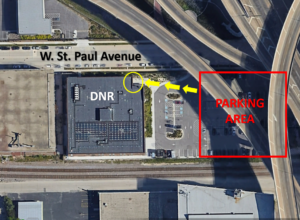The Wisconsin Department of Natural Resources (DNR) will host its quarterly Remediation and Redevelopment External Advisory Group (RR EAG) meeting from 9 a.m. to noon on Thursday, July 13, 2023.
The DNR’s RR Program oversees the investigation and cleanup of environmental contamination and the redevelopment of contaminated properties. The DNR has a business need to receive constructive and practical input from, and provide information to, interested parties on a wide variety of regulatory and policy issues.
The RR EAG was formed to address a broad range of issues encompassing both technical and policy topics related to encouraging the investigation, cleanup and redevelopment of contaminated sites.
The RR EAG meetings are open to the public. In-person attendees should RSVP to Jody.Irland@wisconsin.gov by noon on Wednesday, July 12, 2023.
In-person attendance appreciated, if you feel comfortable, to encourage a more productive discussion.
EVENT DETAILS
What: Remediation and Redevelopment External Advisory Group Meeting
When: 9 a.m. – noon on Thursday, July 13, 2023
Where: DNR La Crosse Service Center
Room B-19
3550 Mormon Coulee Rd
La Crosse, WI 54601
Register to join the meeting via Zoom.
Visit the DNR’s RR EAG webpage for meeting agendas, materials and additional information. Subscribe for updates on future meetings.

